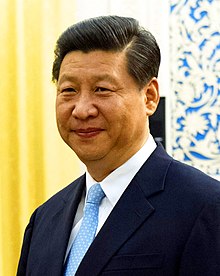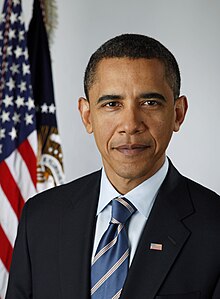Out with the Old

In with the New

In the same month as U.S. elected a President for another four year term, the 18th Congress of the Communist Party is electing a new President and a Prime Minister for a ten year term. To be formally announced on Thursday, November 15, the new Chinese President or The General Secretary of the Communist Party will most certainly be Xi Jinping 59 (above), supported by a new Prime Minsiter, Mr. Li Keqiang 57 (below).

These two gentlemen have been groomed for several years and will be supported by possibly another five or seven Politburo Standing Committee members.
The real reformer of modern China is the late Deng Xiaoping, who moved China from hard core communism of Mao to a successful market economy. He was succeeded by Jiang Zemin (86) who himself was succeeded by the now retiring leader Hu Jintao. Hu is leaving a strong legacy behind for moving China's economy into second place, but it seems Jiang still holds sway over Communist Party, as he seems to have a great say in picking Hu's successor.
The two new leaders are largely unknown, though not entirely. Both have been actively involved in the Politburo for the last several years. Xi Jinping is a Chemical Engineer by profession, his daughter studies at Harvard. Li Keqiang has a degree in Law and a PhD in Economics.
The new leadership is expected to focus on economic reforms, consolidate substantial gains made under Hu Jintao's leadership and improve standards of living of common people. The Chinese public is becoming restless and outspoken. Demonstrators have managed to stop construction of chemical plants in their neighborhoods, something unheard of a few years ago. Also, corruption is rampant, it needs to be dealt with sternly. Hu Jintao's 'state-of-the-union' speech to 18th Congress laid great emphasis on it.
The new leadership will need to deal with these challenges in a humane manner and lift the Chinese economy to a much level if they wish to leave behind a legacy of Number One economy in the world. Currently Chinese GDP accounts for 11% of the world, compared to US' 23%. OECD estimates that by 2030, Chinese GDP will account for 28% and US 18%.
Deng Xiaoping and his successors have accomplished an economic miracle in China. A major reason for this success, China avoided American style misadventures in Vietnam, Iraq & Afghanistan. The new leadership needs to stay that course. China will need to pacify its neighbors, especially Japan and South Korea and avoid conflicts over some uninhabited islands. Similarly Japan & South Korea need not be influenced by other powers, if they want peace and prosperity in their region.

In with the New

In the same month as U.S. elected a President for another four year term, the 18th Congress of the Communist Party is electing a new President and a Prime Minister for a ten year term. To be formally announced on Thursday, November 15, the new Chinese President or The General Secretary of the Communist Party will most certainly be Xi Jinping 59 (above), supported by a new Prime Minsiter, Mr. Li Keqiang 57 (below).

These two gentlemen have been groomed for several years and will be supported by possibly another five or seven Politburo Standing Committee members.
The real reformer of modern China is the late Deng Xiaoping, who moved China from hard core communism of Mao to a successful market economy. He was succeeded by Jiang Zemin (86) who himself was succeeded by the now retiring leader Hu Jintao. Hu is leaving a strong legacy behind for moving China's economy into second place, but it seems Jiang still holds sway over Communist Party, as he seems to have a great say in picking Hu's successor.
The two new leaders are largely unknown, though not entirely. Both have been actively involved in the Politburo for the last several years. Xi Jinping is a Chemical Engineer by profession, his daughter studies at Harvard. Li Keqiang has a degree in Law and a PhD in Economics.
The new leadership is expected to focus on economic reforms, consolidate substantial gains made under Hu Jintao's leadership and improve standards of living of common people. The Chinese public is becoming restless and outspoken. Demonstrators have managed to stop construction of chemical plants in their neighborhoods, something unheard of a few years ago. Also, corruption is rampant, it needs to be dealt with sternly. Hu Jintao's 'state-of-the-union' speech to 18th Congress laid great emphasis on it.
The new leadership will need to deal with these challenges in a humane manner and lift the Chinese economy to a much level if they wish to leave behind a legacy of Number One economy in the world. Currently Chinese GDP accounts for 11% of the world, compared to US' 23%. OECD estimates that by 2030, Chinese GDP will account for 28% and US 18%.
Deng Xiaoping and his successors have accomplished an economic miracle in China. A major reason for this success, China avoided American style misadventures in Vietnam, Iraq & Afghanistan. The new leadership needs to stay that course. China will need to pacify its neighbors, especially Japan and South Korea and avoid conflicts over some uninhabited islands. Similarly Japan & South Korea need not be influenced by other powers, if they want peace and prosperity in their region.



